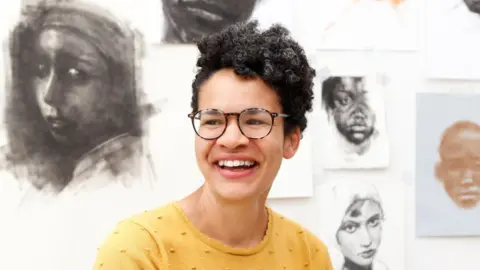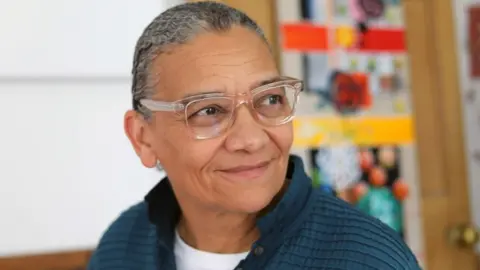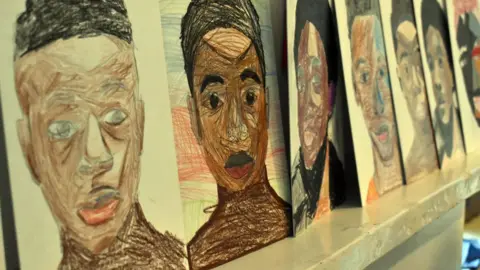Lancashire's 'overlooked' black history told in exhibition
 Lancashire County Council
Lancashire County CouncilAn exhibition reflecting on the "previously overlooked" story of Lancashire's black history is set to go on display in Lancaster.
The city, once the fourth largest slave trading port in the country, saw 125 slave ships sail to West Africa.
A series of portraits of black Lancastrians from the 1700s, including an escaped young slave, have been commissioned for the display.
The exhibition will be opened by Turner Prize winning artist Lubaina Himid.
The new commissions, by artist Lela Harris, are based on information obtained from church records, runaway slave adverts and family stories.
 Magda Stawarska
Magda StawarskaHistoric figures include Thomas Anson, Frances Elizabeth Johnson, John Chance, Isaac Rawlinson, Molly and 'Ebo Boy', a young African man who escaped from slavery in Heysham, Lancashire.
Those featured all lived at a time when Lancaster merchants invested in selling an estimated 30,000 enslaved Africans through the Atlantic Slave Trade.
Lynda Jackson, museum manager of Judges' Lodgings, said the exhibition told the story of "an important period of our history".
The new portraits are shown alongside people who benefitted from slavery including Abraham Rawlinson, Mary Hutton Rawlinson, Benjamin Satterthwaite and Jane Hardman, which were painted by portrait artists including George Romney and Joseph Wright of Derby.
 Lancashire County Council
Lancashire County CouncilSome of the furniture and portraits on display at the museum were bought by Lancaster families involved in the slave trade and the West Indies trade in goods produced by enslaved Africans in the Caribbean, such as sugar and rum.
Jenny Waldman, director of Art Fund, said: "The previously overlooked story of Lancaster's black history will be brought to light through this moving series of portraits by Lela Harris."
The exhibition, supported by Art Fund, the Association of Independent Museums and National Lottery Heritage Fund will also display artwork by local primary school children.
The exhibition runs from 30 March 30 to 5 November at Judges' Lodgings Museum in Lancaster.

Why not follow BBC North West on Facebook, Twitter and Instagram? You can also send story ideas to [email protected]
